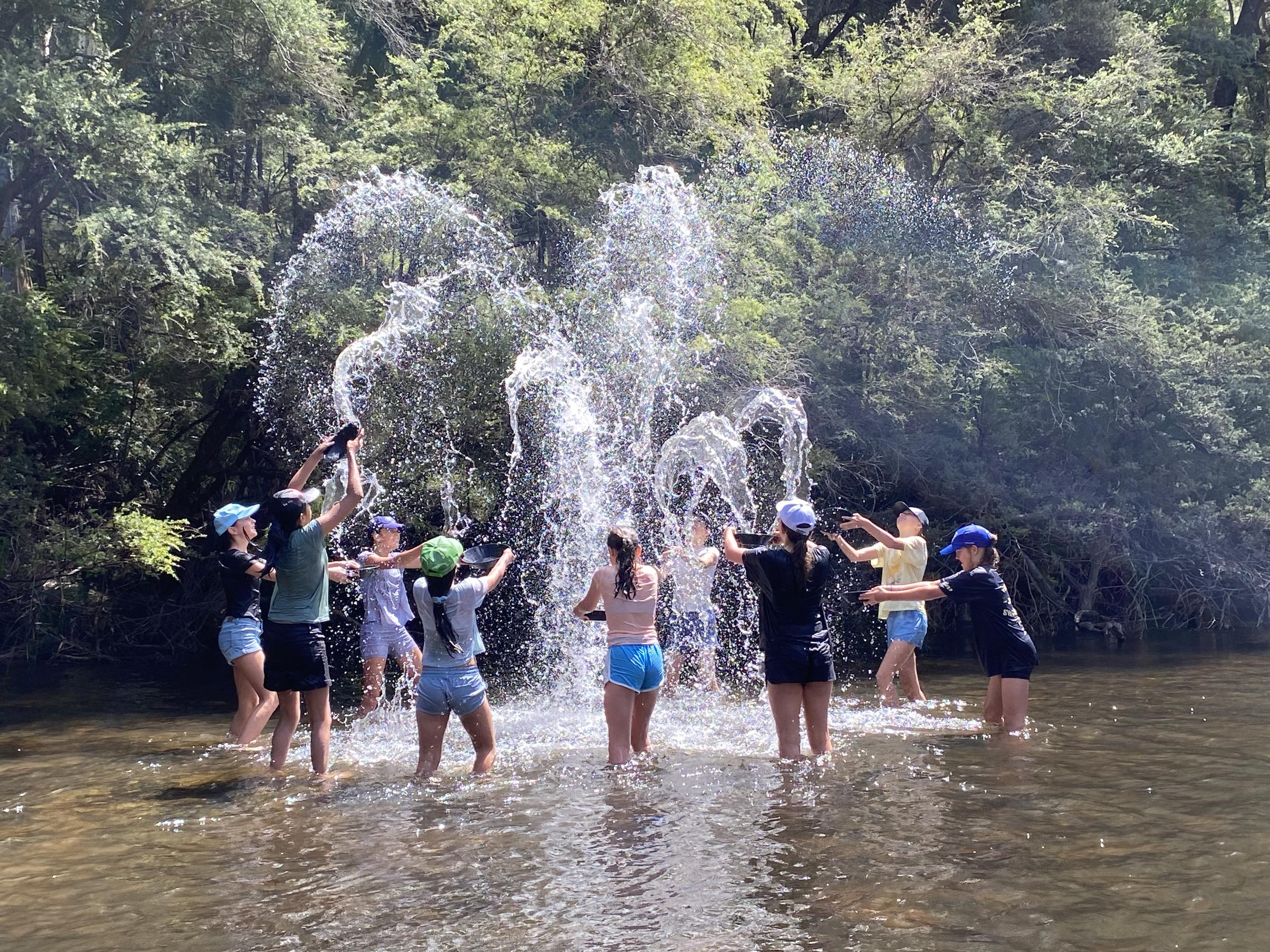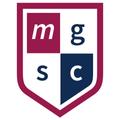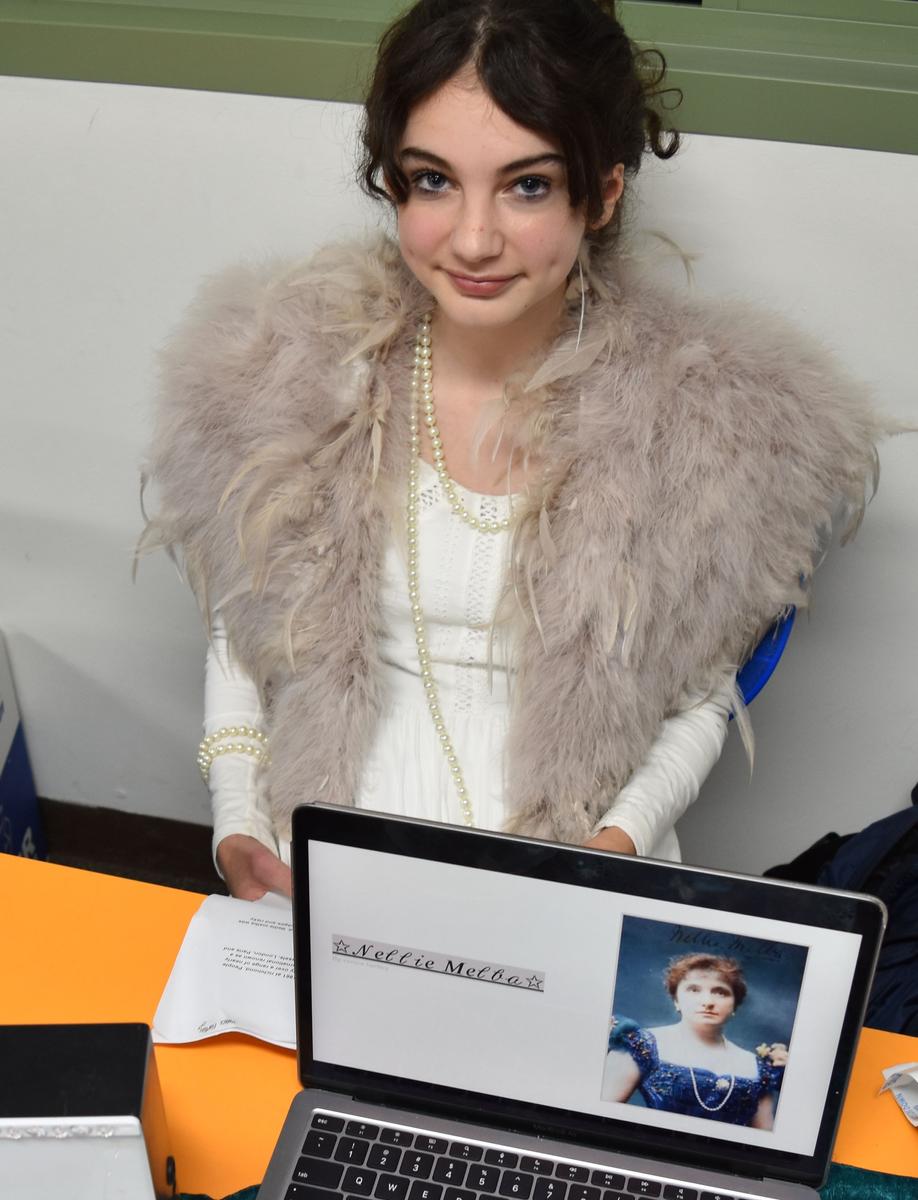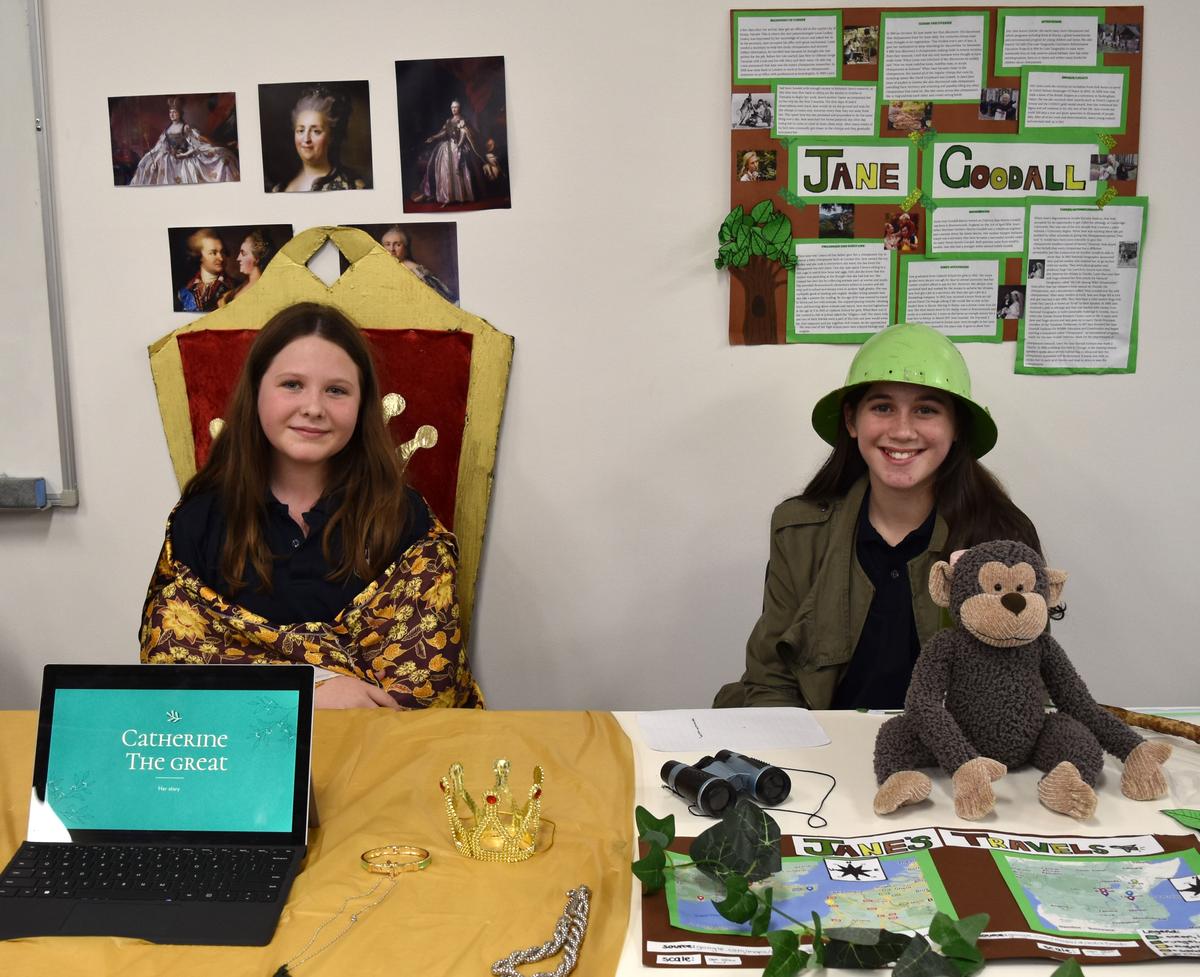Year 7

7 English
Semester One
Students explore media articles and apply persuasive writing skills when creating their own point of view texts. The novel 'Chinese Cinderella' is used as the framework for developing skills in analytical essay writing. There is a strong literacy focus throughout the semester as students undertake wide reading tasks, journal writing and regular grammar and spelling activities.
Semester Two
Students undertake a study of the themes and literary features in 'Sister Heart' and develop a response that reflects their understanding of the style and ideas explored in the text. Students plan, rehearse and deliver a point of view oral presentation and analyse the film ‘I am Eleven'. There is a strong literacy focus throughout the semester as students undertake reading, writing workshops and regular grammar and spelling activities.
Assessment
Essay writing , oral presentation, journal writing, film analysis
7 Humanities
Semester One
In Semester One, students will build their historical skills and knowledge in a critical study of Ancient China and an inquiry-based study of a woman in history. In this study, students will develop their research skills as they investigate and interrogate the past.
Semester Two
In this semester, students will be developing their geographic and economic understandings. Students will explore the notion of liveability with regard to their local Australian context as well as major cities around the world. In doing this, students will engage with field work, investigative research and collaborative practices. Students will also explore the process of establishing and running a business as well as exploring the availability of water. They will do this with discussion and investigation into the relationship First Nations people have with the environment.
Assessment
Students will complete two common assessment tasks (CAT) in each semester. In Semester One, students will undertake a source analysis and produce a presentation on their chosen woman in history. In Semester Two, students will create a multimedia presentation to sell their business to a panel to invest in their ideas. They will also investigate water systems and rivers, leading to a case study on a river.
Throughout the year; students will be engaging in formative research tasks, oral presentations, design tasks, source analysis, case studies and reports.
7 Maths
Semester One
Students explore geometry; classifying angles, measuring angles, finding angles around a point and angle relationships formed by parallel lines and transversals. They continue to develop fluency in number skills, and consolidate their knowledge relating to whole numbers by studying concepts such as estimating and rounding, prime numbers, square, cube and index numbers. In addition, they gain further experience solving problems with fractions and decimals. Concepts of statistics are explored, with measures of centre calculated, analysed and inferences made. Throughout the semester, students are encouraged to develop key skills and apply their knowledge to solve a variety of problems.
Semester Two
Students continue to develop fluency in number skills, solving problems with decimals and percentages. They are introduced to the process of substitution in the algebra unit, use the four operations to simplify algebraic expressions and also solve linear equations. They learn more about coordinates, plotting points on the cartesian plane and exploring linear graphs. The metric system is explored and students convert units of measure to find the perimeter, area or volume of shapes and objects. Students also calculate elapsed time and convert between analogue and 24 hour time. Throughout the semester students continue to improve their basic numeracy through the Numeracy Ninja program and times table Quizz.
Assessment
Students will complete three CAT tasks per semester covering the Victorian Curriculum areas of Number and Algebra, Measurement and Geometry and Statistics and Probability. In addition to CAT tasks students will complete additional tasks as both formative and summative assessment. CAT tasks are a variety of topic tests, problem solving analysis, collaborative assignment or scenario based applications of the mathematics studied.
7 Science
Semester One
Students are introduced to the science laboratory including the specialised equipment and safety rules. They use knowledge of mixtures to investigate a variety of separation techniques. Throughout the semester students engage in a variety of practical and investigative tasks to develop practical science skills.
Semester Two
Students explore both contact and non-contact forces including gravity, magnetism, friction and the electrostatic force. The forces involved in a falling parachute are investigated through the design and reporting of a practical investigation. Students identify differences within and between groups of organisms; and understand that classification helps organise this diversity. Interactions between organisms are studied by identifying different relationships between and within species and through the understanding of food webs.
Assessment
Students will complete two common assessment tasks (CAT) in each semester. In each semester students will undertake a scientific investigation as well as a variety of tasks which may include topic tests, writing a storybook explaining a scientific concept or a research project
7 Language - French
Semester One
Students learn to use and recognise vocabulary and expressions in French focusing on personal information, physical appearance, family, friends and pets. They practise their reading, listening, speaking and writing skills. Students are introduced to French grammar, including gender and articles, how to use the verbs “avoir” and “être” in the present tense and how to apply adjectival agreements.
Semester Two
Students learn to use vocabulary and expressions in French across different topics including school, hobbies, homes and food. They practise writing and speaking with an emphasis on pronunciation. In grammar, students are introduced to present-tense verbs, partitive articles, the negative form and modal verbs. Students investigate and experience various aspects of French culture.
Assessment
Students complete one Common Assessment Task (CAT) each term. CATs include roleplays (speaking), writing tasks, and listening and reading comprehension tests.
7 Language - Japanese
Semester One
Students are introduced to the different Japanese writing systems and when to use them. There is a strong focus on learning to read and write the basic hiragana. Students develop a variety of communication skills through active participation in the classroom. They learn how to ask someone their name, introduce themselves and their friends, and learn the numbers. Students are also introduced to strategies for learning languages.
Semester Two
Students continue to develop their listening, reading and writing skills. They begin to interpret and respond to texts and move on from writing individual hiragana characters to full sentences. Communicative tasks are centred around themselves, including their family and the city in which they live. Students learn new grammar structures and continue to build their vocabulary. They are also introduced to the days of the week, some leisure activities and the verbs associated with them.
Assessment
Students complete two Common Assessment Tasks (CAT) each semester. CATs include speaking tasks, listening and reading tests, and writing tasks.
7 Heath, Physical Education & Sport
Semester One
Health and Physical Education aims to promote a healthy and active lifestyles now and in the future. The sport and physical activity classes focus on the important role physical activity, sport and recreation need to play in the lives of all Australians in meeting the national physical activity guidelines. Providing opportunities for students to be challenged, achieve personal growth, enjoyment and personal fitness. Students are exposed to a variety of sports/ activities in practical sessions during semester one including; fitness, athletics, ultimate frisbee, netball, dance and minor games. Through sport education, students will take what they have learnt in physical education classes and facilitate their own round robin competition, taking on the roles of coaches, fitness trainers, and administration. Encouraging leadership growth and student voice through movement.
In Health education, students learn how to take positive action to enhance their own and others’ health, safety and wellbeing. Students examine the physical, social, emotional, mental and spiritual dimensions of health and wellbeing. Demonstrating a range of health seeking strategies that will support them to access and evaluate health information and services. Semester One Health content explores
- Body & Mind
- Respectful Relationships
Semester Two
Students are exposed to a variety of sports/ activities in practical sessions during semester two including soccer, gymnastics, volleyball & outdoor education. Through sport education, students will take what they have learnt in physical education classes and facilitate their own round robin competition, taking on the roles of coaches, fitness trainers, and administration. Encouraging leadership growth and student voice through movement.
In Health education, students learn how to take positive action to enhance their own and others’ health, safety, and wellbeing. Students examine the physical, social, emotional, mental, and spiritual dimensions of health and wellbeing. Demonstrating a range of health seeking strategies that will support them to access and evaluate health information and services. Semester two health content explores;
- Youth Health Issues
- Safety.
Assessment
- Physical activity and movement skills: Students will be assessed on their practical execution of skills and movement, their participation, application of individual and team strategies, ability to work in a team, understanding of rules and leadership.
- Health Education application: Students will complete one Health CAT each semester.
7 Music
Semester One
This unit provides students with an introduction to the elements of music. Students learn about musical instruments, investigating how they produce sound and how they can be used to manipulate the elements of music. They use musical instruments to learn and rehearse a range of musical pieces in preparation for class performances, demonstrating technical and expressive skills.
Semester Two
Students continue with their exploration of the elements of music. Students are exposed to a range of different musical instruments and practise, rehearse and perform different musical pieces in different styles. Students use their knowledge of the elements of music to compose and record, combining the use of music technology with performance skills to create their own musical pieces.
Assessment
Keyboard Skills: Students will learn to play a melody on the keyboard. Students will learn a new melody or piece that they have not played before. Students in a Band Form will be assessed on their band instruments instead of the keyboard.
Songwriting: Students create and record their own compositions. These include at least 2 verses and a chorus if they are writing a pop song. They are recommended to follow a 3 or 4 chord diatonic chord pattern and should include a brief written description of the mood of their composition.
Musical Performance: Students choose an instrument that they wish to play. They rehearse and present a musical performance on this instrument.
7 Art
Semester One & Two
This unit involves the study of the art elements and principles, the art and design process and the production of final artworks. Students focus on a range of visual arts practices such as printmaking, drawing, ceramics and painting processes across the whole year.
Assessment
Students focus on a range of visual arts practices such as printmaking, drawing, sculpture and painting processes across the whole year. Students do one CAT in each semester.
7 Fashion Technologies
Semester
This unit involves students exploring the role of textiles in society and the importance of risk management when using tools and machinery. Students develop skills in both hand and machine sewing techniques through the design and construction of textile products.
Assessment
Risk Assessment and Practical Skill Building- Students learn about different tools, equipment and machines used in Textiles. Students learn basic machine sewing processes to gain skills needed to make a garment. Students learn basic hand sewing processes to create a product of their own design.
Garment Construction - Students research, design and make a pair of shorts using the sewing machine to construct the garment.
Hand sewn product - Students design and create a product using hand sewing skills for construction and/or embellishment.
7 Drama
Students explore the nature of drama. They are introduced to the key elements of drama, the application of design and character development. Students build confidence in their abilities to create and evaluate performances.
Assessment
Drama Play: Students participate in a unit of work on the conventions of plays, scriptwriting and character development. They work in groups to script, rehearse and present a play. Students evaluate the work they have created in a drama workbook.
7 Digitech
Semester One
Students are introduced to online collaboration tools, how to manage their digital workspace and will develop a protocol for working in online spaces.
They also investigate how digital technology is being used to assist with tasks related to camping and hiking and complete a range of tasks that focus on using technology to assist with enjoying the outdoors. Tasks include coding a micro:bit electronic processor, using Python, to make a step counter, digital compass, automatic torch and temperature gauge.
Students then design and create their own digital solution to use for camping and hiking.
Semester Two
Students will investigate environmental data in the classroom and how it impacts learning. They will use a sensor to collect data and use a spreadsheet program to collate and analyse this data. Spreadsheeting skills developed will include creation of tables and graphs and use of formulae and functions.
Assessment
Students complete a CAT each semester that focuses on the creation of digital solutions and spreadsheeting skills as well as additional tasks to assess the skills gained.



